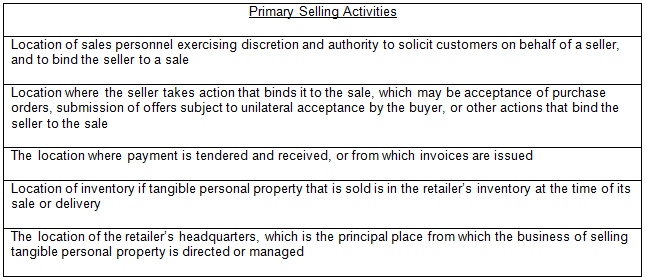On September 11, 2014, Michigan Governor Rick Snyder signed legislation (SB 156) retroactively repealing the Multistate Tax Compact (Compact, formerly codified at MCL § 205.581 et seq.) from the state statutes, effective January 1, 2008. Among other things, the bill’s passage ostensibly supersedes the Michigan Supreme Court’s decision in Int’l Bus. Machines Corp. v. Dep’t of Treasury, 496 Mich. 642 (2014) (holding that (1) the enactment of a single sales factor under the Business Tax Act (codified at MCL § 208.1101 et seq.) did not repeal Compact by implication and (2) the state’s modified gross receipts tax fell within the scope of Compact’s definition of “income tax” which the taxpayer could calculate using Compact’s three-factor apportionment test) and relieves the Department of Treasury from having to pay an estimated $1.1. billion in refunds to taxpayers. While many commentators have rightfully focused on the constitutional validity of retroactively repealing the Compact in Michigan in such a manner (including our own Mary Kay Martire in her recent blog post), we think it is equally as important to consider whether the repeal compromises the validity of prior interstate audit assessments authorized pursuant to the Compact.
Background
Article VIII of the Compact provides the specific rules governing participation in interstate audits conducted by the Multistate Tax Commission (MTC) via their Joint Audit Program (Program). Unlike other provisions of the Compact, Article VIII is “in force only in those party states that specifically provide therefore by statute.” Section 8 of the Compact provides this authority, simply stating “Article VIII [of the Compact] shall be in force in and with respect to this state.” See MCL § 205.588 (repealed by SB 156). This threshold matter must be satisfied before the MTC is authorized to audit and assess businesses and review their books and records on behalf of any particular state.
The MTC and its participating audit states have taken the controversial position that membership and participation in the Program is independent from a state’s Compact status (e.g. Massachusetts, Nebraska, Tennessee, and Wisconsin have not adopted the Compact, yet participate in the Program). Further, even when authorized, states have the discretion to elect not to participate in the Program by simply opting out for one or both of the taxes audited (income and franchise, or sales and use).
Minnesota offers an example of a state that may have withdrawn from the Compact correctly while maintaining the State’s ability to participate in MTC audits. In May 2013, the legislature enacted legislation repealing the Compact (H.F. 677, repealing Minn. Stat. § 290.171) (this legislation does not appear to be retroactive). In doing so, the legislature included a separate provision authorizing continued participation in audits performed by the MTC. See Minn. Stat. § 270C.03 subd. 1(9), amended by H.F. 677. While Minnesota ultimately opted not to participate in these audits, they have statutory authority if they so choose (but as noted above, the Compact itself may not allow for this).
Implications
Unlike Minnesota, the recent repeal in Michigan failed to [...]
Continue Reading
read more

 Subscribe
Subscribe




